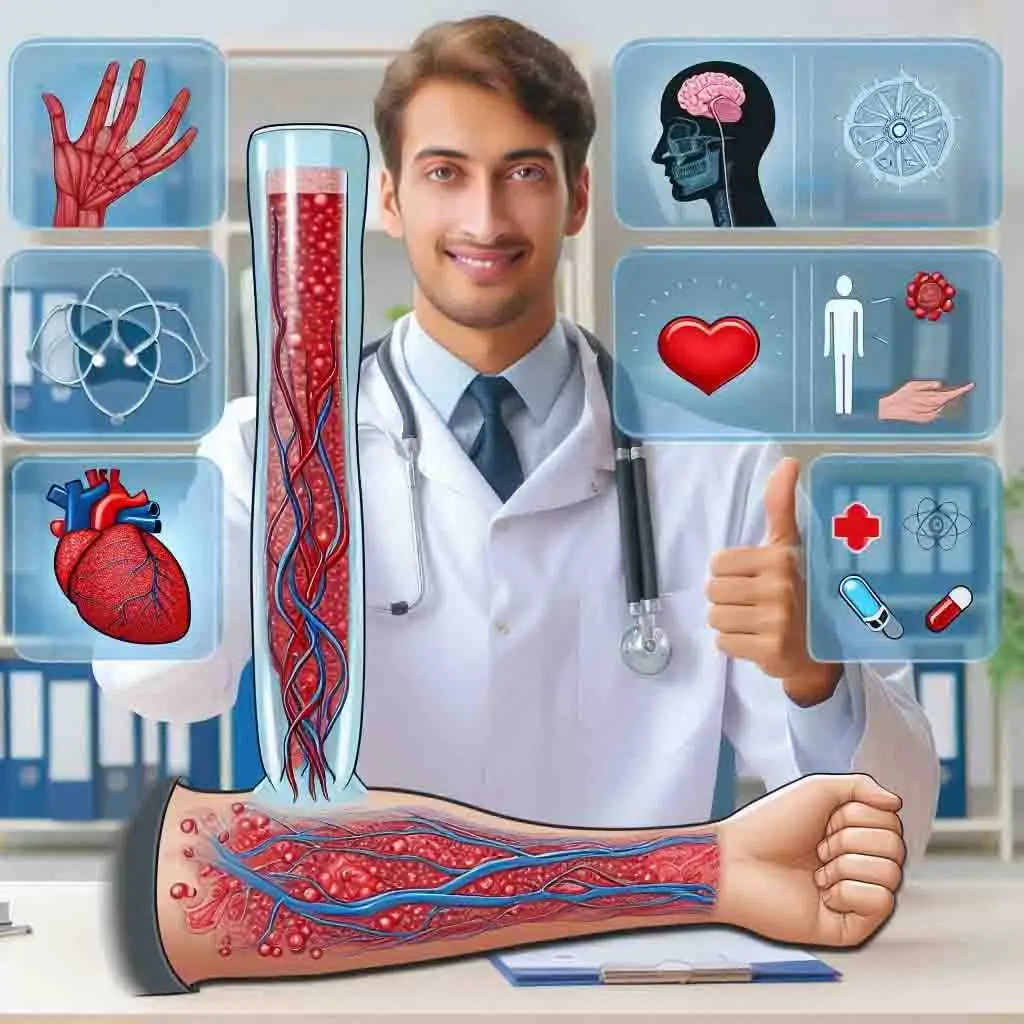How to Choose the Right Lymphedema Specialist?
Finding the Right Specialist for Your Journey
If you or a loved one is dealing with lymphedema, choosing the right specialist can make all the difference in your care and recovery. With the growing recognition of lymphedema as a chronic condition that requires specialized attention, finding a qualified, experienced lymphedema specialist is more crucial than ever. But how do you navigate the process to ensure you’re in the right hands?
This article’ll guide you through the essential steps to finding the ideal lymphedema specialist. We’ll highlight current trends in patient-centered care, the latest credentials to look for, and how new technologies can improve the experience. Whether you are at the start of your treatment or switching providers, this article will arm you with everything you need to know to make an informed decision.
What is a Lymphedema Specialist?
A lymphedema specialist is a healthcare professional trained in diagnosing, treating, and managing lymphedema. These specialists often come from different medical backgrounds—physical therapists, occupational therapists, or certified lymphedema therapists (CLTs)—and are skilled in manual lymphatic drainage (MLD), compression therapy, and self-care education.
Why the Right Specialist Matters for Effective Treatment
Choosing the right specialist isn’t just about finding someone who understands lymphedema—it’s about selecting a professional who can provide the right combination of treatments tailored to your needs. A knowledgeable and compassionate specialist can:
- Prevent complications, such as infections or worsening symptoms
- Improve your quality of life with the right treatment plan
- Empower you to manage your condition independently
Lymphedema treatment is evolving rapidly, so finding a specialist who stays updated with cutting-edge therapies and modern tools is essential.
Certifications and Qualifications: What to Look For
Certified Lymphedema Therapist (CLT)
The CLT certification is widely recognized as the gold standard for lymphedema care. Specialists with this credential undergo comprehensive training in areas like manual lymphatic drainage (MLD), bandaging, and exercise therapy.
Physical and Occupational Therapists with Specialized Training
Many physical therapists (PTs) and occupational therapists (OTs) also receive specialized training in lymphedema care, which equips them to offer hands-on therapies and rehabilitation programs.
Continuing Education and Advanced Training
In 2024, more providers opt for continuing education courses in advanced lymphedema care to stay current with evolving treatments. This ensures that patients receive the latest evidence-based therapies.
Key Factors to Consider When Choosing a Specialist
1. Experience with Your Specific Type of Lymphedema
- Is your condition primary (genetic) or secondary (resulting from surgery or radiation)?
- Specialists with experience in cancer-related lymphedema may offer unique insights if your condition develops post-cancer treatment.
2. Treatment Techniques Offered
Different specialists use a variety of techniques. Ask if they offer:
- Manual lymphatic drainage (MLD)
- Compression bandaging or garments
- Low-level laser therapy or pneumatic pumps
3. Availability of Multi-Disciplinary Care
A well-rounded care team may include vascular surgeons, physical therapists, dermatologists, and wound care specialists. Some advanced centres provide multidisciplinary teams under one roof.
The Role of Technology in Lymphedema Care
Technology is transforming the way specialists treat lymphedema. Ask if your specialist integrates modern tools such as:
1. Advanced Imaging Techniques
Technologies like Indocyanine Green (ICG) lymphography and magnetic resonance lymphangiography (MRL) allow specialists to visualize your lymphatic system in detail.
2. Telemedicine and Remote Monitoring
With the rise of telemedicine, many specialists now offer virtual consultations, reducing the burden of frequent travel for follow-ups. Additionally, wearable compression devices equipped with Bluetooth can send real-time data to your specialist.
How to Research Potential Specialists
1. Use Online Directories
Many medical associations maintain lists of certified lymphedema therapists and centres. Resources like the Lymphatic Education & Research Network (LE&RN) and the National Lymphedema Network (NLN) provide searchable directories by location.
2. Check Reviews and Testimonials
Reading patient reviews can provide insights into a specialist’s experience and quality of care. Look for comments about communication, expertise, and treatment success stories.
3. Ask for Recommendations
Your primary care doctor or oncologist can often recommend reliable lymphedema specialists. Additionally, support groups are an excellent referral resource based on patient experiences.
Questions to Ask During Your First Consultation
- What is your experience treating my type of lymphedema?
- Which treatment methods do you specialize in?
- Do you offer ongoing support and follow-up care?
- Does insurance cover your services, or do you offer payment plans?
Trends in Patient-Centered Lymphedema Care
In 2024, patient-centred care is gaining traction, focusing on empowering patients to manage their conditions actively. Specialists now emphasize:
- Education and Self-Care: Patients receive training on using compression garments and practising self-massage techniques.
- Holistic Treatment Approaches: More specialists incorporate nutrition counselling and mental health support to address all aspects of the condition.
How to Know if You’ve Found the Right Specialist
The right specialist will make you feel comfortable, heard, and empowered. Key signs include:
- They listen to your concerns and involve you in decision-making.
- They stay updated with current best practices and offer the latest therapies.
- You feel improvement in your symptoms and confidence in managing your condition.
Conclusion: Key Takeaways
Choosing the right lymphedema specialist is critical to managing your condition effectively. Focus on finding someone with relevant experience, certifications, and a patient-centered approach. With technology and care models advancing in 2024, specialists are better equipped than ever to offer personalized care. Don’t hesitate to ask questions, do your research, and take your time to find a provider who meets your needs.
FAQs
1. How do I know if a specialist is certified to treat lymphedema?
Look for certifications like CLT (Certified Lymphedema Therapist) or ask about specific training in lymphedema management.
2. Can my primary care doctor manage my lymphedema?
While primary care doctors can help with initial diagnosis, a specialist is usually needed for comprehensive management.
3. Does insurance cover lymphedema treatment?
Coverage varies by provider, but many insurance plans cover compression garments and therapy sessions. Check with your insurance for specific details.
4. How often should I see a lymphedema specialist?
The frequency depends on the severity of your condition. Some patients need weekly sessions, while others may only require monthly follow-ups.
5. What is the best way to manage lymphedema at home?
At-home management involves wearing compression garments, practising self-massage, and following an anti-inflammatory diet. Your specialist can provide personalized recommendations.





